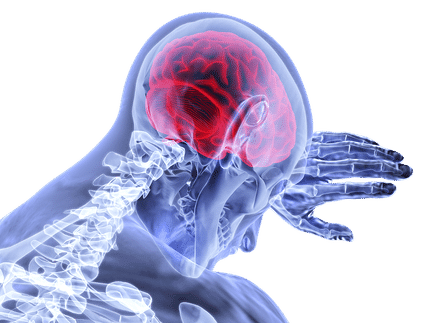Europe to tackle brain disorder research by linking industry, academia
Brain disorders including addiction, depression, and schizophrenia afflict 1 billion people and are often incurable with current therapies
Attempts to cure brain-related disorders have proved less successful than therapies for other major conditions such as heart cancer, even though just as many people suffer from them. About 600 million worldwide each year are afflicted by depression alone, more than any other condition except heart disease, and yet of those given existing drugs, only half recover.
Furthermore progress treating depression as well as other major brain disorders has stalled. This stark fact lies behind an ambitious European proposal to revive the field. The proposal, to be presented at EuroBioForum, in Lisbon in December 2007, aims to develop a ground breaking multi-disciplinary research project which would propel Europe to the head of global research into the crucial role of neurotransmitters in brain disorders. Bringing together the relevant specialisms in chemistry, radio-chemistry, in vivo modelling, and above all PET and SPECT scanning, the project would exploit recent advances both in PET (Positron Emission Tomography), and SPECT (Single Photon Emission Computer Tomography), enabling metabolic activity such as levels of neurotransmitters to be determined with greater accuracy in space and quantity.
The objective is to develop new methods to identify the release of neurotransmitters such as noradrenaline, serotonin, acetylcholine, and endorphins, in the brain and so examine their role in major brain disorders. This in turn will enable more effective therapies to be developed than current drugs, which often fail to work, according to the project's leader David Nutt, Professor of Psychopharmacology at the University of Bristol, UK. Professor Nutt is presenting his vision for this groundbreaking project at the EuroBioForum conference, which is organised by the European Science Foundation (ESF) with support from the European Commission. The programme has great potential for human health given the vast number of people affected, but as Professor Nutt pointed out, the scale of the task is great.
"We don't even know for example whether serotonin levels are high or low in depressed people," said Professor Nutt. This is despite the fact that many current anti-depressant drugs, including Prozac, alter the uptake of serotonin by key receptors in the brain. Professor Nutt's observation shows that there is a lack of knowledge over how existing drugs work, and until greater understanding is reached, it will be very difficult to make further progress.
Until now researchers have been deterred by the sheer extent of the problem in unravelling the complex links between multiple neurotransmitters and a range of conditions. This, said Professor Nutt, is big science on the same level as the Human Genome Project, or splitting the atom. It requires a huge harmonised effort, combining the forces of academia and the pharmaceutical industry. Until now neurological research has tended to be fragmented, with industry more concerned with improving existing therapies and determining correct combinations of drugs and dosage levels. Meanwhile academia has tended to plough too many small furrows, without tackling the big picture.
Most read news
Topics
Organizations
Other news from the department science

Get the life science industry in your inbox
By submitting this form you agree that LUMITOS AG will send you the newsletter(s) selected above by email. Your data will not be passed on to third parties. Your data will be stored and processed in accordance with our data protection regulations. LUMITOS may contact you by email for the purpose of advertising or market and opinion surveys. You can revoke your consent at any time without giving reasons to LUMITOS AG, Ernst-Augustin-Str. 2, 12489 Berlin, Germany or by e-mail at revoke@lumitos.com with effect for the future. In addition, each email contains a link to unsubscribe from the corresponding newsletter.



















































